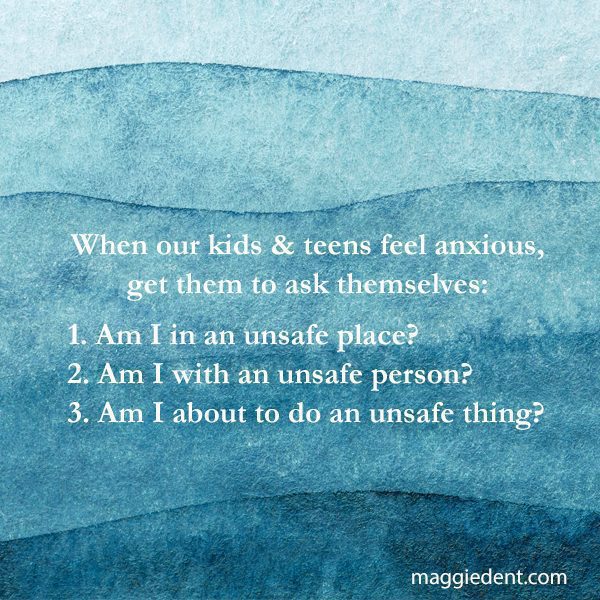Body Safety / Talking Sex, Newsletter Articles, Posts for Parents, Raising Girls
Helping our girls’ voices not be silenced in today’s world

Warning: this article contains some descriptions of sexual acts.
I am a child of the 50s and 60s when traditional patriarchy was in full swing. Most mothers never had the opportunity to work or dream of a career and women could not even take out a bank loan. Even in the early 80s I had to resign from my teaching position and lose my permanence when I left to have my first son!
In a recent post on social media I shared that I clearly remember when I was about 8 an elderly man telling me, “Missy, you need to be careful not to get too big for your boots!”
So the cultural messages about keeping girls and women in their place, well below men, were pervasive. Little girls were often told to look pretty, stay quiet, be good and always look happy with a smile on your face.
There have been many advances for girls and women over the last 20 years – hard-fought advances – even though pay equity still has a long way to go. There are female leaders of countries all around the world. Gradually women are speaking up about the injustices that unhealthy patriarchy still sees as acceptable and normal.
Over the last 12 months the light has begun to shine in some very dark places.
As I wrote in a blog a few months ago, at last there is some serious light being shone on the dark underbelly of inappropriate sexual behaviour and abuse and most specifically rape from boys and men in Australian schools, communities, businesses and parliament. From the moment that the courageous advocate for survivors of sexual assault Grace Tame became Australian of the Year, something shifted.
After Grace’s award, the former Liberal staffer Brittany Higgins was inspired to finally disclose her alleged (I use that word only for legal purposes) rape in the office of a Federal Minister. This disclosure from an eloquent young woman has been the catalyst for others to speak up about similar assaults in our Federal Parliament.
Then appeared the petition by former Kambala student Chanel Contos now signed by more than 43,000 girls and young women. The testimonies that they have left are harrowing and distressing to read, however the light needs to shine on the stories so that we collectively know the truth of this violent culture and stop it happening to other girls.
These girls and women have been heard but have they been heeded and is action and change in our halls of power and our society at large going to follow?
Just this week, I know I wasn’t alone in being surprised (gobsmacked even!) that we needed a petition to persuade the European Handball Federation (EHF) that it was fair for female athletes – like their male counterparts – to wear shorts instead of high-cut bikini bottoms “consistent with the attractive image of the sport”. This came after the disciplinary commission fined the women’s team $1,500 euros for defying the rules at a recent tournament. How are our most elite athletes still so blatantly subjected to sexism?
What has happened to our girls’ voices in a time of rising feminism that strongly advocates for respect and acceptance of the worth and value of individuals regardless of gender? In education, the impetus for breaking down gender expectations around mathematics and science has been largely dismantled. The world has witnessed young women being courageous and demonstrating leadership and passion to create positive change – think Greta Thunberg and Malala Yousafzai.
And yet, as mentioned earlier we’re still hearing about our girls being sexually harassed and demeaned at school.
Worse still, is that – for all their empowerment – things seem to be worsening for our young women in their burgeoning sexuality.
As women and girls’ advocate Melinda Tankard Reist has written extensively, many teenage girls in their early sexually intimate experiences with a boy, feel pressured by boys to perform porn-inspired sex acts such as being slapped, choked or coerced into painful anal sex. In her 2019 submission into the Inquiry into Age Verification for Online Wagering and Online Pornography, she writes of accounts of girls feeling they couldn’t say no, and that girls felt such sexual behaviour was “expected of them”. These statements were illustrated by a GP interviewed (by writer Alison Pearson) who has in recent years had to treat a growing number of teenage girls, often under the age of consent, for incontinence, anal tearing and internal injuries.
This is so worrying.
At the risk of embarrassing my own sons, my memories of my first experiences with a boy I liked was getting all hot and steamy in the back row of the cinema. There was a lot of pashing, fumbling and groping, however it was all very enjoyable. I certainly felt I had a voice that said no when it crossed a boundary of appropriateness. Expectations were obviously different then. I do know this was not every teen girls’ experience.
Somewhere recently I read a teen girl saying that being forced to do oral sex on boys was just ‘some of the stuff girls have to do nowadays’. How has that come to be seen as normal?
Can we just blame the influence of pornography on the silencing of our girls during such a formative time in their lives?
Obviously, there are some unhealthy influences coming from the digital world that are shaping the expectations of both our boys and our girls. But they’re starting a lot earlier than in adolescence.
The sexualisation of our girls has amped up, and it is everywhere – billboards, in magazines, on social media platforms, on apps and on the largest digital playgrounds like YouTube and TikTok. Is that simply desensitising our girls and our boys to what respectful behaviour is, or is it normalising behaviour that was once considered inappropriate?
Rather than think I can solve that dilemma in a blog article, I want to focus on how we can give our little girls a voice – a voice that they can keep without being crushed or silenced.
Giving little girls a voice they’ll take into adolescence & beyond
You may be aware that I recently conducted a survey about parenting and educating young girls under 8. I have started going through the results and I have pulled out a few things that may be of interest to parents, grandparents, educators and community members to ensure our girls keep their voices. Messages from the survey appear in italics.
1. We as key grownups in our girls’ lives need to model using our voices and allowing theirs.
This was one of the messages in the survey:
“Funny, I had the most amazing father who always taught me to stand my ground and to have a voice. I remember standing in line at a store waiting to buy a drink. I had been waiting a fair while when an older man pushed in front of me. I turned to him politely and said “excuse me sir the back of the line is over there” pointing to the end. He turned to me and responded “respect your elders young lady”, with all the quick wit in the world I remembered what my dad had taught me and replied ‘respect does not come with age it is earned, now, the back of the line is over there’.”
2. Our rooster girls, who are often stronger and feistier, need to learn the value of having a voice that does not hurt others.
Being intentionally mean is not a voice we want to encourage. Having a voice is so much more than just being loud and opinionated. We need to teach our children that real empathy is important. I have a list of books on my website that can help with this.
“Other girls always seem to hurt her feelings by betraying her. They are always jealous and end up being mean when they started out being her best friend.”
3. Being the best or the loudest can be a lonely place to be.
In many ways our society is so competitive and it’s important we encourage healthy competition and cooperation in our girls. Girls together, watching out for each other and cheering each other on is a great way to keep all our voices alive and strong.
“Strong girls can sometimes clash and I’m very passionate that we teach our girls to embrace and support other strong girls/women. My daughter did clash during the early stages of play with another strong girl and through talking and encouraging play they have formed a good friendship. They can still sometimes clash which I am helping her understand and respect, as it shows both of them are able to show their true self and embrace their strong personalities as a positive when channelled in the right way. Respect and removing competition between girls is important to be able to build strong networks that support and lift each other up.”
4. Our lamb girls are not necessarily weak…
Teaching them to show what matters through their actions, especially what is fair and respectful, can be helpful.
“My daughter at day care was teaching her little friends to toilet train. Standing outside the toilet with the door shut for privacy with a sticker and clapping, ready to go. With lots of love and encouraging words.”
5. In our ECECs and classrooms we need to ensure that all students have a voice and are heard.
“As a teacher of primary aged children, I see the need for girls to take up more space – aural space. The boys are far more likely to say whatever occurs to them whenever it occurs to them to say it. They’re more likely to raise their hands high, with energy and confidence, girls are more likely to stay quiet, or raise a tentative hand. I want the girls to take up space like the boys. I want all my students to take part in robust discussions and share their thinking and opinions.”
6. Fairness and kindness needs to be taught, modelled, role-played and experienced through regular play with other children.
Relational aggression – name calling, put downs and exclusion are hurtful and are a powerful way of silencing little girls’ voices. (My audio I am a good friend was created to help children understand that being a good friend requires certain behaviours).
“Generally girls can be very mean to one another for no reason. Friendship groups don’t seem to last long and they are all consistently looking for something better.”
“It always gives me goosebumps when my little girl is always the friend that comforts and soothes her friends or siblings when they fall or are hurt in some way. She is just so nurturing and caring.”
7. Body awareness and safety – consent starts right from when our children are babies.
Please teach your girls (all children actually!) correct names for private parts and that her body belongs to her and NO-ONE can touch her private parts without permission. Again, here are some great books and resources to help with that.
8. If someone hurts you say NO. STOP – I DON’T LIKE THAT!
Teach your girls to do this, with both hands up in a clear non-verbal gesture. It can help to explain the difference between accidentally hurting someone and intentionally hurting someone and that saying sorry for unintentionally hurting someone is the right thing to do. Sometimes our girls can be the voice for a child who is not brave enough to say these words! Building an awareness of healthy boundaries is a long game for both girls and women. The voices of Naomi Osaka and Simone Biles need to be celebrated.
9. Teach our girls about our early warning system and why it matters.
If we feel the anxious sensations in our body we ask 3 questions.

Read lots of stories about strong, brave girls and women who have walked the path before you.
There are loads of lists online but you may wish to start with these ones from A Mighty Girl (their top 100!), Pan Macmillan and Harper Collins. Rebecca Sparrow has some great lists too, including for 8-14 year olds and for tweens and teens.
10. Her appearance is not her voice.
One of the biggest concerns expressed in the survey for our little girls is the worry about the pressure of their appearance defining their worth and value. The way she looks is not her voice. Valuing all body types and embracing genuine authenticity can help our girls to find their true voice.
“My little girl has a triangle friendship with two other girls in her kindy class. The other girls often make comments on her appearance and clothing. I love it when I hear my little girl tell them so bravely – it’s what’s on the inside that counts!”
11. Learn to laugh
Cultivating a healthy sense of humour can be a powerful way of empowering little girls to navigate the world where negative messages and social conditioning are overtly or discretely shaping their sense of self. It can defuse conflict and can be deceptively valuable when a girl is being attacked or bullied or when some grown-up tells her to be careful she doesn’t get too big for her boots!
Almost 5,000 parents responded to my survey about little girls and this shows the concerns and passions to raise our girls to be happy, healthy and heard.
I will leave you with one last message from the survey where a little girl is hearing the voice of her non-verbal little friend.
My daughter has a girl at her day care that has non-verbal autism, my daughter is extremely verbal in her communication, and she has developed a lovely relationship with this child, understanding what this child needs even without speech.
Maggie’s new book, Girlhood: Raising Our Little Girls to be Healthy, Happy and Heard is out now. Order on ebook, audiobook or in print. Get all the details here.
You might also be interested in catching the replays of her masterclasses with Steve Biddulph on Raising Mighty Girls, or her masterclass about tween/teen girls with Michelle Mitchell, Understanding Our Gorgeous, Confused Girls.
Image credit: ©️ By benevolente/Adobe Stock – stock.adobe.com




